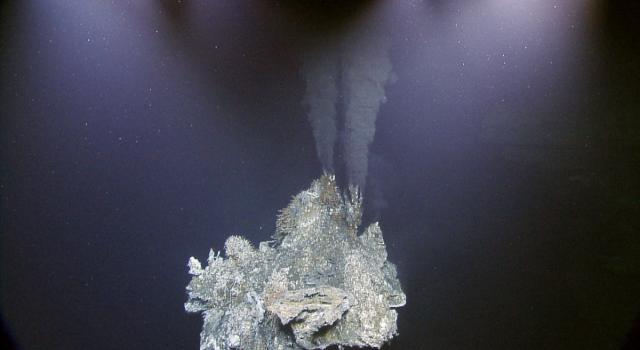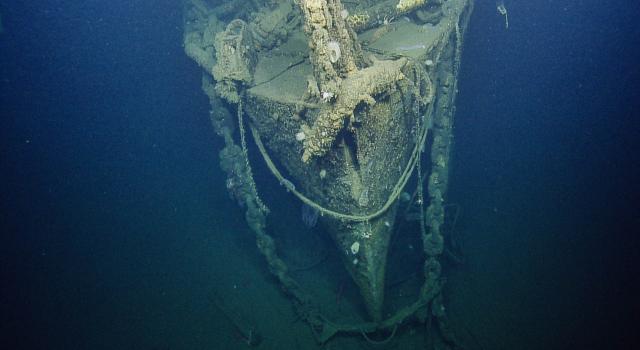Our Science Focus
Nearly two-thirds of our planet is covered by water, yet over 95 percent of the ocean is unexplored. Exploring and documenting deep sea phenomena is critical for basic science and understanding our planet, conservation, and management.

Biology
The deep, dark ocean is teeming with life – much of which has yet to be discovered! Biological exploration from Nautilus focuses on a variety of deep-sea ecosystems, including deepwater coral and sponge habitat, chemosynthetic vent and seep communities, and marine megafauna.

Geology
Some of the tallest mountains on Earth are underwater, forming long chains of ridges or solitary seamounts – and some are active volcanoes! The same forces that create and destroy sections of the Earth's crust also produce hydrothermal vents and certain methane seeps, hosting chemosynthetic communities.

Archeology
The seafloor provides an often untouched record of human history, making it an important target of exploration for archeologists studying the complex chronicles of humanity. Maritime archaeology sites, from sunken wooden ships to modern military vessels and aircrafts, also provide habitat for deep-sea animals.
Our Technology
Ocean exploration is a complex endeavor, and Nautilus is outfitted with the latest tools and technology to provide scientists and engineers both onboard and ashore with the data they need for continuing research in geology, biology, archaeology, and physical oceanography.
Partner's Technology
Our ship is an excellent platform for technology development and testing. Many of our expeditions involve hosting partners' vehicles and guest technologies to advance new modes of ocean exploration and develop new efficiencies as we work to understand the ocean.
Tools, Methods & More
Sampling Procedures
Nautilus explores areas of the deep sea that have rarely been seen by human eyes, so it is crucial to have a record of the environment and organisms found below. Our team collects biological, geological, and water specimens using remotely-operated vehicles (ROVs) and processes samples in our shipboard lab. Learn more
What Happens after Cruises?
Once an expedition ends, data and specimens live on in the laboratories of researchers, archives of data centers, and repositories of institutions. Although researchers on board and ashore sometimes recognize an exciting new discovery immediately, most discoveries will occur long after explorers return from sea. Learn more
Data Management
Ocean Exploration Trust contributes data, video, and samples gathered on expeditions to multiple public archives to ensure it will be available for decades to come. The video, data, and samples that result from our expeditions are available to any interested researcher post-expedition by request. Learn more
Scientists
Participate live as we explore through our Scientist Ashore Program via telepresence, and request data and samples.
Expeditions
Get a sneak peek of where we're headed next or revisit the discoveries of our past expeditions.
Publications
Explore the list of manuscripts, books and book chapters, theses, and dissertations from the data and samples collected aboard Nautilus.























